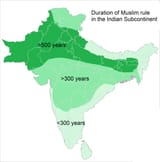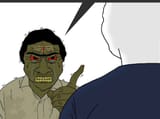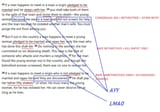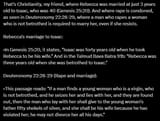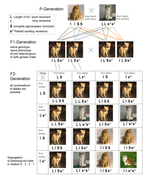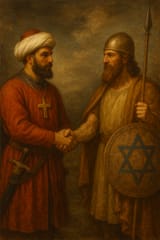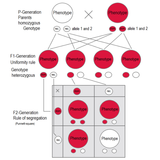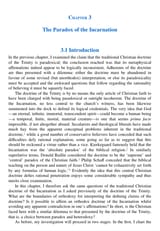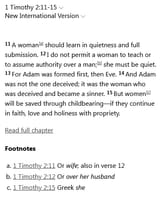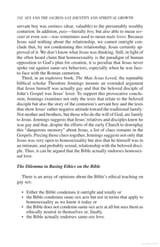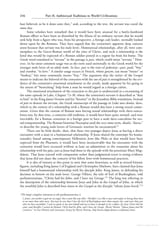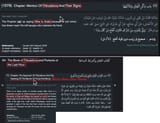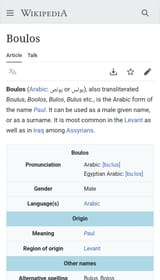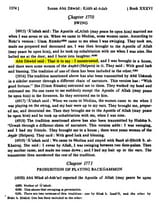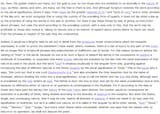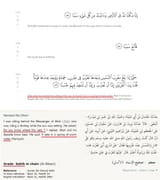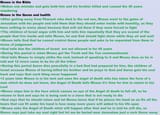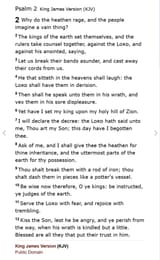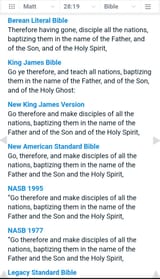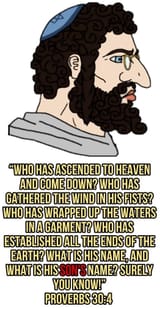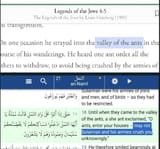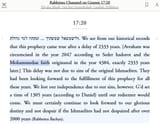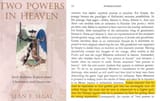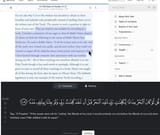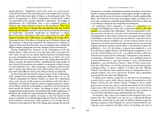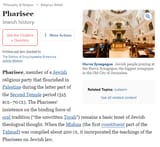>>507581194
Good question. No idea about other languages, but the word "ridden" in Arabic in the given passage is "yarkaboun." The Qurʻan is seen as the source for the literal meaning of words, and this word is used to mean 1.) to literally ride on something (an animal, a cart, etc), or 2.) (rarely) to put things together. It doesnʻt seem to have a sexual connotation, like it does in English.
Another account of this same thing goes like this:
"Ibn Jurayj mentioned in his tafsīr, from Abī ʿUbayda bin ʿAbd Allāh ibn Masʿūd, who narrated from ibn Masʿūd, who said;
‘The Prophetﷺ went to the Jinn to recite the Qur’ān to them and call them to Allah. He asked his Companions, “Who will accompany me? Who among you doesn’t have a grain of pride in his heart that will stand with me?” The people remained silent. The Prophet repeated it again, and then a third time, until ʿAbd Allāh ibn Masʿūd stood up. Ibn Masʿūd said “I went out with the Messenger of Allah in the direction of al-Hujūn until we reached the area of Abū Dhub. The Prophet drew a line for me and said, ‘Do not cross this line.’ whereupon the Jinn descended upon him like locusts. He recited the Qur’ān to them in a loud voice. They fell and stuck to the ground until I could not see them. the Jinn said to him, “Who are you? Who are you?” to which he replied, ‘A Prophet!’ They asked; “Who will bear witness for you?” He replied, “This tree will bear witness for me.” he called the tree and it came to him, dragging its branches and making a sound. The tree bore witness to his prophethood and then returned to its place.’ [...]
The Prophet drew a line for me and said, do not leave this line and proceed into the mountain. I heard a loud, unpleasant mixture of sounds and wanted to follow it, but remembered the Prophet’s ﷺ command and did not leave the line. When he returned, I told the Prophet what had happened to which he said, “If you had left the line, I would never have seen you again.”
 6/16/2025, 9:48:47 AM
No.507567798
>>507567944
>>507568067
>>507568222
>>507568527
>>507570004
>>507570144
>>507570584
>>507570598
>>507570711
>>507571465
>>507571799
>>507571867
>>507572018
>>507572840
>>507572908
>>507573404
>>507573789
>>507573827
>>507573861
>>507573888
>>507575584
>>507575788
>>507576174
>>507578002
>>507578345
>>507579951
>>507580905
>>507585082
>>507585210
>>507585659
>>507587088
>>507590951
>>507592639
6/16/2025, 9:48:47 AM
No.507567798
>>507567944
>>507568067
>>507568222
>>507568527
>>507570004
>>507570144
>>507570584
>>507570598
>>507570711
>>507571465
>>507571799
>>507571867
>>507572018
>>507572840
>>507572908
>>507573404
>>507573789
>>507573827
>>507573861
>>507573888
>>507575584
>>507575788
>>507576174
>>507578002
>>507578345
>>507579951
>>507580905
>>507585082
>>507585210
>>507585659
>>507587088
>>507590951
>>507592639




